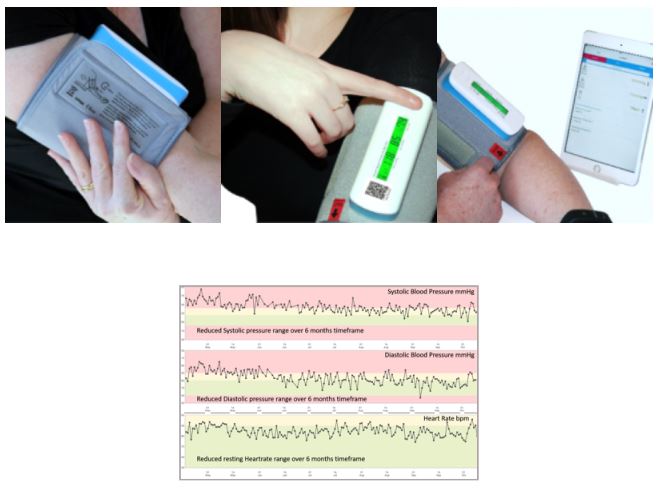Getting Control of Hypertension
Why do I have hypertension?
High blood pressure can affect anyone – young or old, super-fit athlete or inactive couch potato. There are, however, some common factors that will increase your risk of developing it. These include:
- Age – as we age our blood pressure tends to go up. The Framingham Heart Study, which followed patients for 30 years, agreed that systolic blood pressure shows a continuous increase between the ages of 30 and 84 years or over. Diastolic blood pressure, however, has a varying pattern with ageing, increasing until the fifth decade and slowly decreasing from the age of 60 to at least 84 years of age (1). So, it’s increasingly important to have regular checks as you get older. An easy way to do this is undertake this at home.
- Family history – if one or more family members (usually a parent or sibling) have high blood pressure, then you’ll have an increased risk, and the more family members who have high blood pressure, the greater the risk. If you’ve already been diagnosed with high blood pressure, be sure to inform your children (2).
- Lifestyle – tobacco use, being overweight, not doing enough physical exercise, drinking too much alcohol, eating too much salt and not eating enough fruit and vegetables can all contribute to high blood pressure.
Managing Hypertension along with co-morbidities
A keen advocate of self-care at home with the use of digital technology, is 78-year old Elizabeth. She represents a new breed of informed, proactive and activated patients. Elizabeth is a self-professed ex-smoker living with several long-term health conditions (LTHC) or what is termed co-morbidities, including COPD and hypertension.
For the last 3 years Elizabeth has a daily routine of using the Activ8rlives App with clear, colourful and easy instructions to measure an individual’s health parameters daily. These are collected by the suite of Activ8rlives Bluetooth digital devices: Body Analyser, BuddyBand2, Blood Pressure Monitor, Peak Flow & FEV₁ Meter, Contactless Thermometer and Pulse Oximeter, which seamlessly connect to her iPad.
This digital intervention has assisted Elizabeth to keep track of how well she is doing, especially when she was trying to get her hypertension under control as you can see from a snapshot of her blood pressure readings. Elizabeth has been self-monitoring for 3 years. When she becomes aware of her declining health, she seeks support earlier. Elizabeth is determined to not use hospital services when she can avoid this through Self-Care supported through Community Services.
Elizabeth’s blood pressure readings over an example period of 6 months, indicating Systolic and Diastolic blood pressure readings falling over time to within high-normal ranges. Resting heartrate had a marginal fall into the normal range readings over the same timeframe.
Elizabeth explains her thinking and personal view on Self-Care: “Whilst we are all aware of the fact that our conditions are currently incurable, it is good to know that the technology is available that is capable of improving our quality of life. Forewarned is forearmed to promptly treat exacerbations. I also think that we are in a situation where “Help comes to those who also help themselves.” Our health service is struggling and the financial pressure under which it operates is unlikely to improve in the future. In my opinion technology not only has the potential to give the patient a level of self-empowerment, but ultimately to be of benefit to both the patient and the health service.”
Patient education and training in Self-Care and interpretation of their data represents a significant opportunity to empower patients who have diagnosed long-term conditions. They can take better care of themselves, particularly by initiating treatment at the outset of a deterioration (exacerbation) and this represents an opportunity to make a step change in our current provision of community-based healthcare. Self-Care means moving from reactive hospital admissions to partnership with patients/carers in which they become experts in their disease and this is certainly true for Elizabeth.
References:
1. Franklin, S.S. Ageing and hypertension: the assessment of blood pressure indices in predicting coronary heart disease. J Hypertens. 199917(Suppl 5)S29–S36.
2. NHS Choices.
Accessed 20/06/17 http://www.nhs.uk/conditions/Blood-pressure-(high)/Pages/Introduction.aspx

